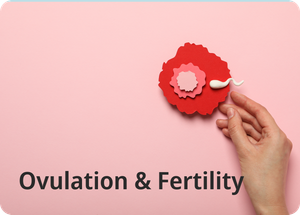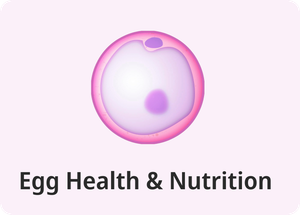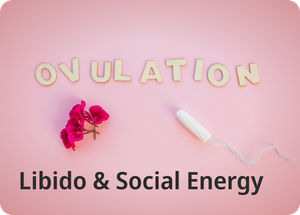The first few weeks after conception are medically termed early pregnancy often even before a missed period is noticed. During this time, hormonal changes begin to alter multiple systems in the body. Some women experience distinct symptoms, while others may notice very few. Understanding these subtle signals allows for earlier diagnosis and safer outcomes for both mother and baby.
After fertilisation, the embryo travels down the fallopian tube and implants into the uterine lining, usually within 6–10 days. Once implantation occurs, the hormone human chorionic gonadotropin (hCG) starts being released, this hormone is responsible for most early pregnancy symptoms and is the basis for home pregnancy tests.
Rising levels of oestrogen, progesterone, and hCG influence the body’s metabolism, digestion, mood, and blood circulation. These changes can cause mild discomforts that serve as the body’s first signals of pregnancy.
A missed period is often the most recognised early sign of pregnancy. For women with regular cycles, missing a period by more than a week warrants a pregnancy test. However, irregular cycles, stress, or hormonal imbalances may also cause delayed menstruation.
Under the influence of oestrogen and progesterone, breast tissue becomes more sensitive and swollen. The areola (the skin around the nipples) may darken, and veins on the breasts can appear more prominent as blood flow increases in preparation for lactation.
In early pregnancy, the body produces more progesterone, which has a sedative effect. The increased metabolic demand and changes in blood sugar may make women feel unusually tired or sleepy even with adequate rest.
Up to 90% of women experience nausea or vomiting in the first trimester, usually starting around the 5th or 6th week. Although popularly called morning sickness, it can occur at any time of the day. It is believed to result from rising hCG levels and increased sensitivity to smell and taste.
By the 6th week of pregnancy, hormonal changes increase kidney filtration and bladder sensitivity, making urination more frequent. This symptom often persists through early pregnancy but usually improves later.
Progesterone relaxes smooth muscles, including those of the digestive tract. This slows digestion, leading to bloating, gas, and constipation — even before the pregnancy is visibly noticeable.
Light spotting or pinkish discharge around the time of implantation (called implantation bleeding) may occur when the fertilised egg attaches to the uterine wall. It is usually lighter and shorter than a period and not a cause for concern unless accompanied by pain or heavy bleeding.
Many women report sudden dislike for certain foods, smells, or beverages they previously enjoyed. These changes are thought to be driven by oestrogen and hCG surges affecting sensory perception.
Fluctuating hormone levels can affect neurotransmitters, leading to mood swings, irritability, or tearfulness. Emotional sensitivity is normal in early pregnancy but should be discussed with a healthcare professional if it becomes overwhelming.
The best time to take a home pregnancy test is one week after a missed period. Testing too early may yield false negatives because hCG may not have reached detectable levels in urine.
If the result is positive, schedule your first antenatal visit immediately. If the result is negative but symptoms persist, repeat the test after 3–5 days or visit a gynaecologist for a blood test, which is more sensitive.
While most early pregnancy symptoms are normal, medical consultation is essential if you experience:
Prompt medical care can help identify complications such as ectopic pregnancy, early miscarriage, or hyperemesis gravidarum (severe vomiting).
In India, women often attribute early pregnancy symptoms like fatigue or nausea to workload or dietary issues, delaying confirmation. Early detection allows for:
Access to home pregnancy test kits has improved in India, but confirming pregnancy through a clinician and initiating antenatal care by 8 weeks remains crucial.
Recognising the early signs of pregnancy allows women to take timely action towards a healthy pregnancy and safe motherhood. While symptoms like missed periods, fatigue, breast tenderness, and nausea are common, each woman’s experience varies. Listening to your body, testing on time, and consulting a healthcare provider ensure early care and reassurance.
Pregnancy, when recognised and nurtured early, offers the best outcomes not just for the developing baby, but for the mother’s physical and emotional well-being.
About PeriodSakhi
PeriodSakhi is your trusted companion for understanding your menstrual health. With easy-to-use tools, it helps you track your periods, ovulation, fertility, moods, and symptoms, while providing insights into your overall reproductive and hormonal health. PeriodSakhi also serves as a supportive online community where women can share experiences, find reliable information, and access expert-backed guidance on menstrual health, PCOS, pregnancy, lifestyle, and more.
Disclaimer
The views, thoughts, and opinions expressed in this article/blog are solely those of the author and do not necessarily reflect the views of PeriodSakhi. Any omissions, errors, or inaccuracies are the responsibility of the author. PeriodSakhi assumes no liability or responsibility for any content presented. Always consult a qualified medical professional for specific advice related to menstrual health, fertility, pregnancy, or related conditions.
Start the conversation
No comments yet. Start the conversation by leaving the first comment!




